Canada’s skyline is evolving with companies looking to meet sustainability goals, and the world is taking notice. From the glass towers rising along Toronto’s waterfront to the sculptural forms shaping Vancouver’s downtown, these five award-winning Canadian buildings show that beautiful design can meet sustainability goals.
What are the CTBUH awards?
The Council on Tall Buildings and Urban Habitat (CTBUH) is a global authority on high-rise architecture known for spotlighting the world’s most forward-thinking towers. Each year, the organization recognizes projects that push the boundaries in terms of design, engineering, and the integration of tall buildings into city life.
The 2025 awards place a strong emphasis on sustainability, innovation, and the connection between buildings and their urban surroundings. Judges considered a range of factors, including environmental performance, community impact, overall design, and engineering. Awards were grouped by height categories, but winners also had to stand out for their contributions, not just their size.
This year, several Canadian buildings stood out thanks to their creative use of space, low-carbon materials, and thoughtful integration into the city fabric. It’s a clear signal that Canada is stepping up as a leader in sustainable, high-impact architecture.
Notable award-winning Canadian buildings of the CTBUH 2025 Awards
T3 Bayside (Toronto)
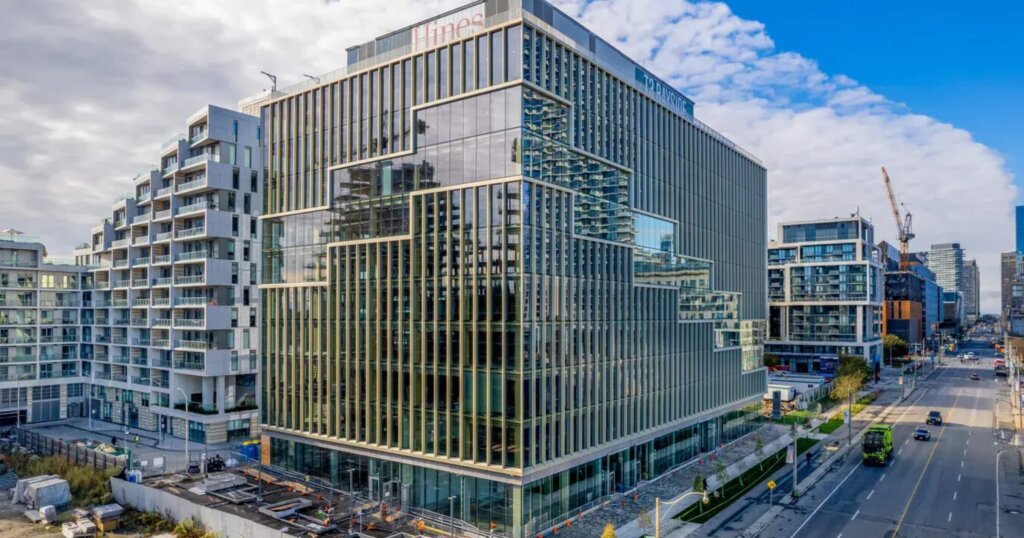
Awards: Best Tall Building under 100 meters & Best Tall Building – Americas
T3 Bayside brings a new kind of energy to Toronto’s waterfront, combining sleek design with sustainable engineering. Built with a mass timber hybrid system, it highlights the potential of low-carbon materials in modern commercial construction. Inside and out, the building emphasizes biophilic design, featuring natural light, greenery, and warm wood finishes that support both wellness and performance.
As one of the first projects of its kind in the city, T3 Bayside reinforces Canada’s growing influence in the mass timber movement and reflects a broader shift toward climate-conscious building practices.
Alberni by Kengo Kuma (Vancouver)
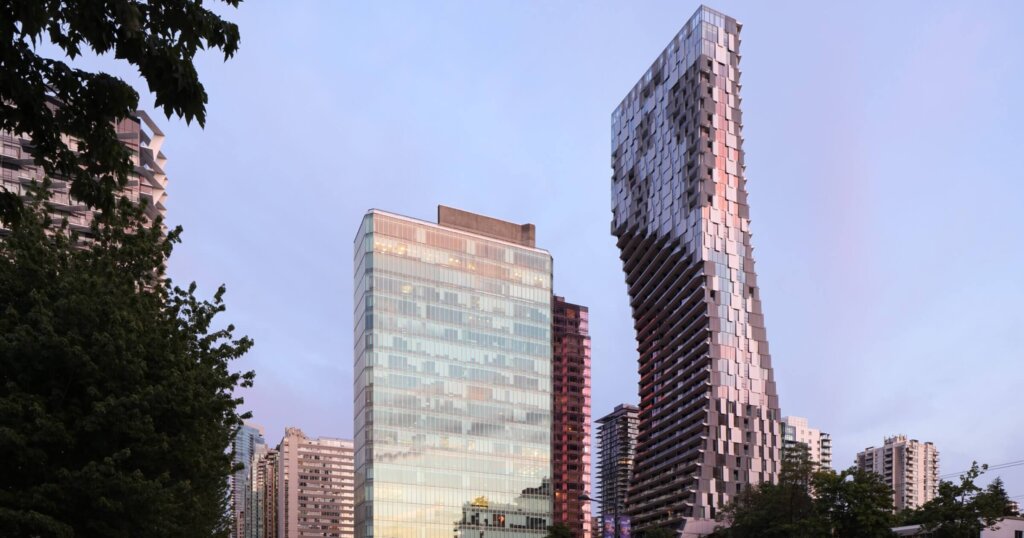
Awards: Best Tall Building 100–199 meters & Best Tall Building – Americas
Alberni by Kengo Kuma brings an unmistakable presence to downtown Vancouver with its sculptural, twisting form inspired by natural landscapes. The tower’s flowing shape and natural form echo its connection to the landscape, a guiding influence in both its design and purpose.
Rooted in Japanese architectural traditions, the building blends into the city while offering a calm, thoughtful living environment. It emphasizes sustainable urban living through energy-efficient systems, thoughtfully designed green spaces, and a pedestrian-friendly footprint.
Ontario Court of Justice (Toronto)
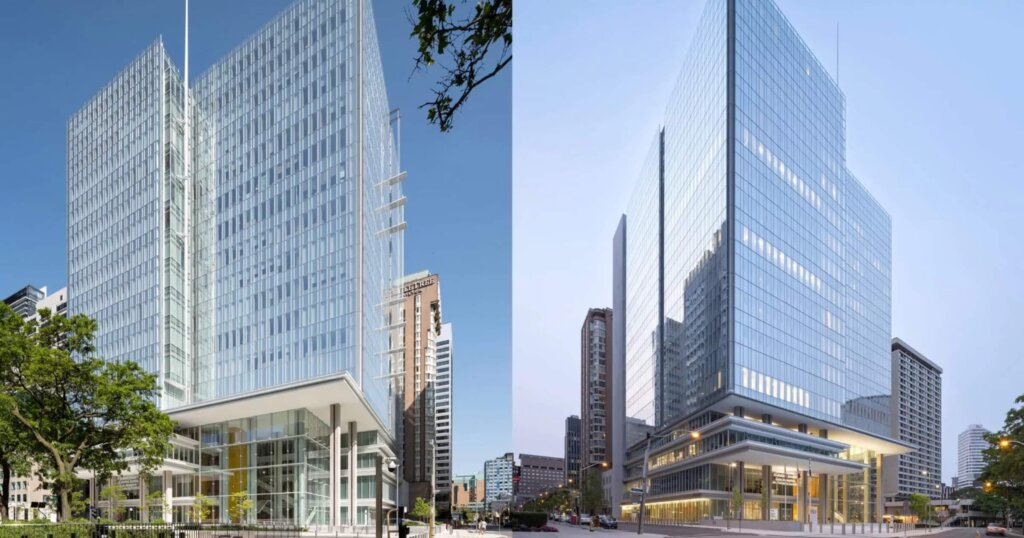
Award: Best Tall Building by Region – Americas
The Ontario Court of Justice brings a fresh take to civic architecture with a design that prioritizes openness and environmental responsibility. From its glass-clad exterior to its daylight-filled courtrooms, the building was designed to promote transparency, both in the legal process and in its connection to the public.
Smart building systems help reduce energy use while improving comfort for those who work and visit there every day. By blending civic purpose with sustainability, the Ontario Court of Justice is setting a new benchmark for how government spaces can evolve.
TD Terrace (Toronto)
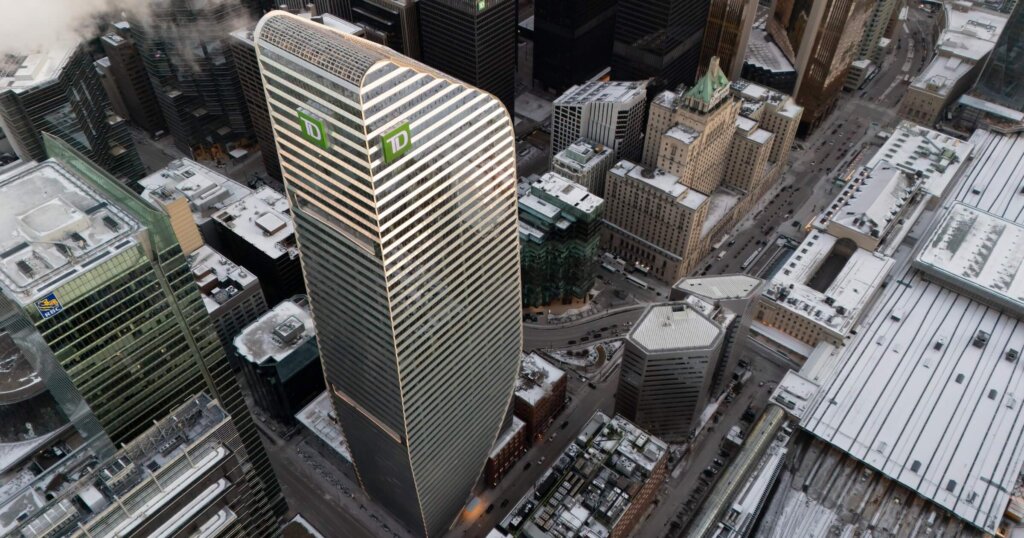
Awards: Best Façade Design & Regional Excellence
TD Terrace brings a sharp silhouette to Toronto’s Financial District with a distinctive stepped glass façade. The façade floods the interior with natural light while reducing glare and improving energy performance. It’s a clever blend of style and strategy shaped by function.
Inside, the building is equipped with smart systems that optimize air quality, lighting, and energy usage in real-time. Designed with wellness in mind, TD Terrace shows how thoughtful architecture can enhance both the user experience and the urban environment.
CIBC Square I and The Well (Toronto)
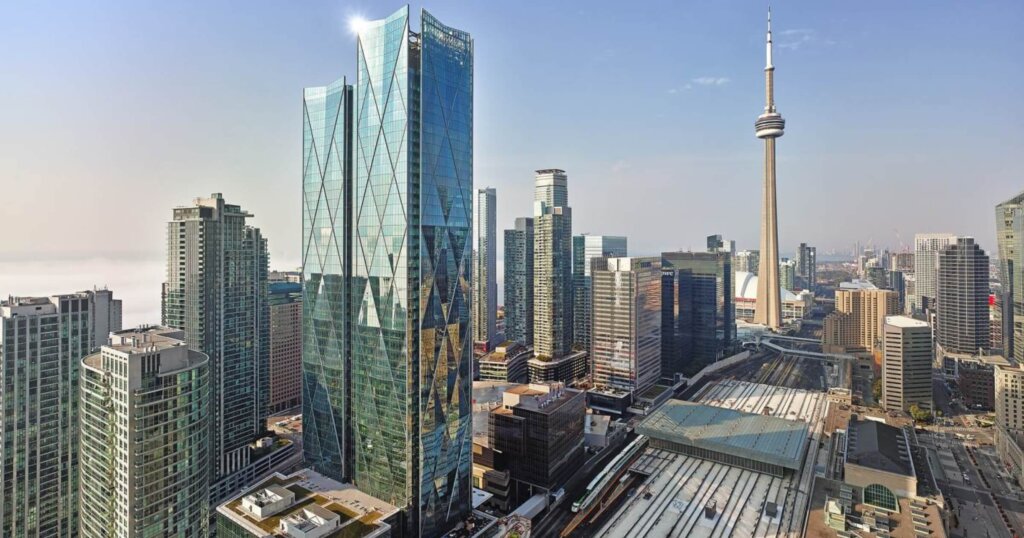
Award: Urban Habitat Award
CIBC Square I and The Well take two very different approaches to city building, but both are reshaping how people live and work in Toronto. CIBC Square I stands out for its smart integration with Union Station, making commuting seamless while offering an elevated park that adds much-needed green space above the rail corridor. Inside, the building emphasizes wellness through natural light, collaborative workspaces, and access to fresh air.
Just a short walk from CIBC Square, The Well takes a mixed-use approach, bringing homes, offices, shops, and public spaces together in one connected place. It’s designed to support walkability, spark everyday interaction, and keep the surrounding neighborhood active and engaged all year long.
Impact on Canadian architecture
A new wave of award-winning towers in Canada is showing a shift in what matters most: less focus on building the tallest and more on creating places that are sustainable, livable, and better connected to the neighborhoods around them. Designers are leaning into mass timber, weaving in more green space and making it easier for people to move through the city with smart transit links.
By blending good design with more sustainable living, practical performance, and a lighter environmental footprint, Canada is shaping a reputation for creating buildings that work for both people and the planet.
Future outlook
Recognition from CTBUH is helping push Canadian architecture further down a path it’s already heading. As these award-winning Canadian buildings draw attention around the world, they could influence how cities approach zoning, funding, and design in the years ahead.
With a growing focus on transit-friendly development, nature-inspired design, and new building materials, Canada is carving out a place as a leader in climate-conscious construction. Interest in prefab and modular building is also making it easier to scale these ideas. Paired with strong policy support, these shifts could speed up Canada’s progress toward net-zero goals and a more sustainable future.
To see how sustainable architecture is reshaping our cities, subscribe to our newsletter for the latest in building innovation, worker safety, and the future of the built world.


